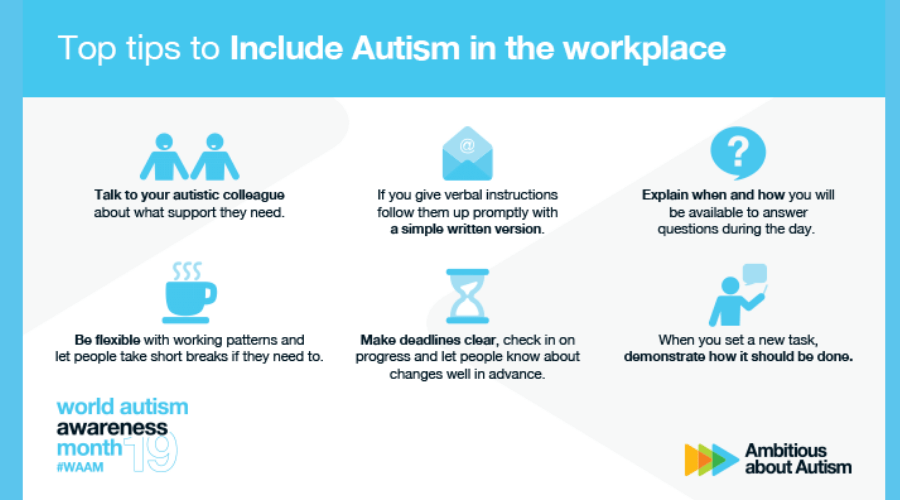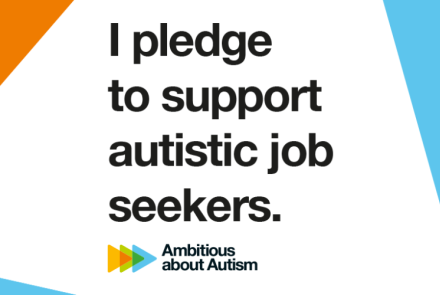Navigating the different rules of the workplace
For the second week of World Autism Awareness Month we're focusing on employment, as our Marketing and Communications Intern Solmaz explains how small changes in the workplace can make all the difference to autistic people.
Although school can be difficult for autistic young people, there are sets of rules and structures that we get to know and follow. But this safety net drops when you enter the world of work and you are thrust into a new environment on your own.
For people on the autistic spectrum this can be very scary as they are now expected to play by a different rulebook. This rulebook, to them is written in code and is hard to decipher. But it seems everyone else can read it fine. Perhaps these are the reasons that only 16% of adults on the autism spectrum are in paid, full time work.
In this blog I want to explain some of the insecurities that young people with autism may feel about entering the workplace – and how employers can help them overcome these.
The interview process
It all starts in the interview room when you are facing your potential new boss, you feel nervous and feel that the ground wants to swallow you up. Interviews are very high pressure and this can be extra stressful for autistic people. Autistic candidates may take longer to process questions, while understanding body language and maintaining eye contact can also be really tough. Having a disability really should not matter for getting a job but some autistic people do not feel comfortable disclosing, either for fear of discrimination or from a bad experience at university or a previous job. Employers need to be disability aware and make their interviewees comfortable. That could be offering them a bigger room, having water available, and even giving more time for questions. These little adjustments will do the world of good.
Ask your employee
The best way to get to know someone is to ask them questions. If you have an autistic employee, don’t be afraid to ask them what they need to work at their best. It’s really important to do this right at the start.
Reasonable adjustments
Once you’ve asked the questions you can begin to put in place small adjustments that will make your employee’s life a lot easier. These can often be very simple things, for example – explaining who they can turn to for help during the day and what times they will be available. Setting clear deadlines and following them up in an email as well as verbally. Demonstrating tasks before setting them and using simple language. All these tips are good practice for all managers – whether you’re working with an autistic employee or not!











